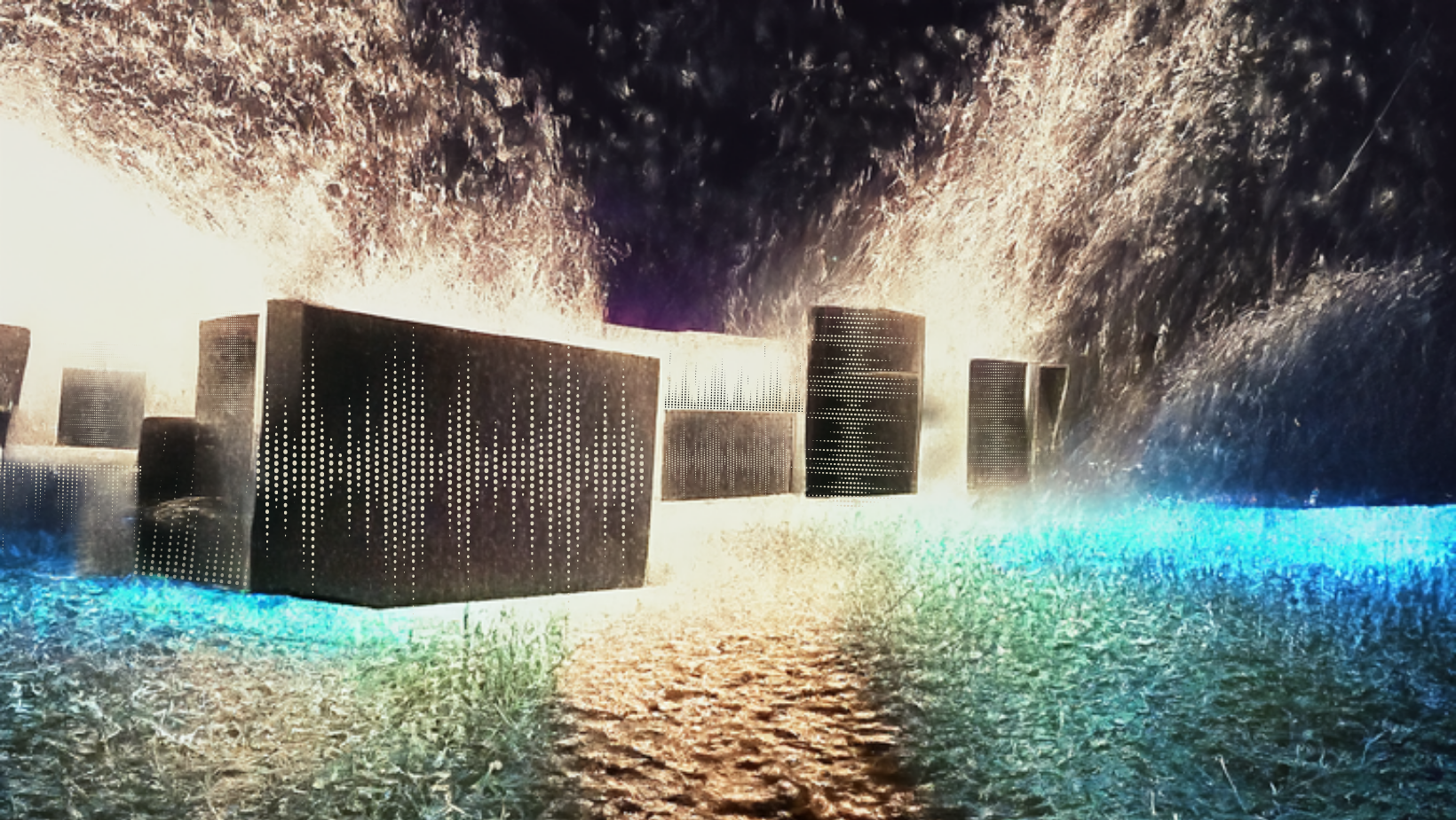The heralding of an integrated network of 3D virtual worlds to reinvent the internet often focuses on what it might look like visually. But what could the metaverse sound like?
In May 2022, MyWorld work package 1.4: Experimental Productions’ challenge workshop, led by Dr Ruth Farrar at Bath Spa University, explored this question with our invited sound artists, researchers, technologists, producers and artists.
The answers were as varied as our workshop participants, invited from all over the country as well as experts from Bristol and Bath. We discussed whether the metaverse should sound like a version of reality or be used to reveal networks from the real world that are often hidden. We all agreed that the metaverse shouldn’t sound like a bad audio play. Instead, it could be spatial and offer new ways of moving through sound. We asked ourselves questions about how, as we process sound in our bodies, we might want the metaverse to feel. We talked about whether a form of synesthesia could be created in virtual environments, with sound, space, narrative and objects taking full advantage of being disembodied and not ruled by physics.
We talked about the metaverse offering opportunities for new sonic practices and new ways of working. We agreed that it should be more accessible, democratic and fair in a way that the internet was originally meant to be. And that now is the time to play and experiment with our possible auditory futures.
To begin this work, our participants started by looking at the possible challenges and opportunities that we might encounter as we soundscape the metaverse. Their lively discussions can be summarised into the following themes;
-
Experimentation
We are at a stage in the emergence of the metaverse where there should be places for us to explore what we can do without a focus on delivering an end product. This could involve experimenting with low-tech technologies that are easy to access to make sure that more people are included.
-
Creation
Multiple voices need to be involved in the creation of sound, recognising that we have both commonalities and differences. As the concept of the metaverse develops at speed, there is a danger of rapidly moving forwards and leaving some people behind.
There is a need for talent development for creators and there is evidence of a digital skills gap. We need to think about how to upskill creatives and develop inclusive development pipelines.
We need to make sure that the rights of creators are protected. Sound is heavily regulated online and although sound libraries are valuable, we need to make sure that soundscapes are original and that creators are paid fairly.
-
Collaboration
There is a tension between creating from artistic and technical points of view and we need to think more about how we can bridge interdisciplinary gaps.
Our workshop participants wanted to explore the possibility of working collaboratively in a culture where there is typically a push to get your work above everyone else’s.
-
Audience Experience
The multitude of ways that we can define an audience within the metaverse and describe our actions became a central discussion in the workshop. Are we an audience, listeners, users, or players and what do these different positions mean?
Audiences need to be active and autonomous in the process of exploring and interacting with their own environments to experience a feeling of immersion. Not all audience demographics have always been catered for in the past so this is an opportunity to address this imbalance.
We talked about how the perspectives of audiences made up of young people who are skilled at layered listening and using multiple screens simultaneously might influence how sound could be experienced in the metaverse.
Taking these discussions as our starting point, we began identify emerging questions that could lead future research within Experimental Productions;
- What is the role of audio in a visual-led experience and how would an audio-first experience operate?
- How can sound within the metaverse be used purposefully? How can it be integral within a virtual world?
- How can users experience feedback through sound through data sonification?
- How might multiple people sound together in the metaverse in relation to one another? Are we together in our voices or through other identification sounds?
- Who is coming to the virtual space? How can people work together across cultural contexts? When we talk about creating for spaces, who are we creating for?
- How do we address the corporatisation of the metaverse? How does sound play a role?
- How can we develop inclusive development pipelines for creators?
The workshop was a fantastic opportunity to explore this new area of research and begin to understand how audio might play a part in the metaverse. And it’s just the beginning. It was apparent from the Challenge Workshop that there is a need for practitioners and theorists working in sound and immersive media technologies to come together more regularly in Bristol and Bath. Ruth Farrar has been continuing to follow these threads of ideas, discussions and questions and is developing a funding bid to continue the conversation.
If you are interested in being part of this conversation, get in touch via info@myworld-creates.com
